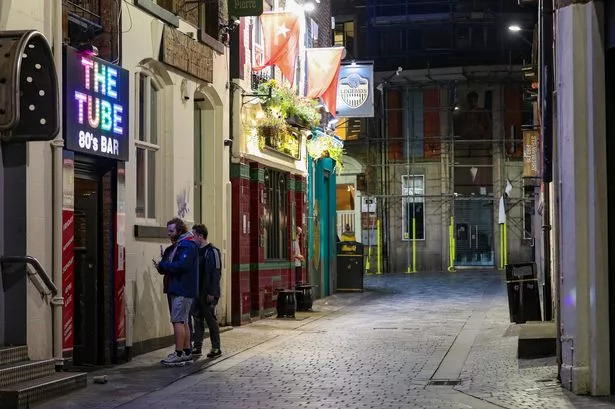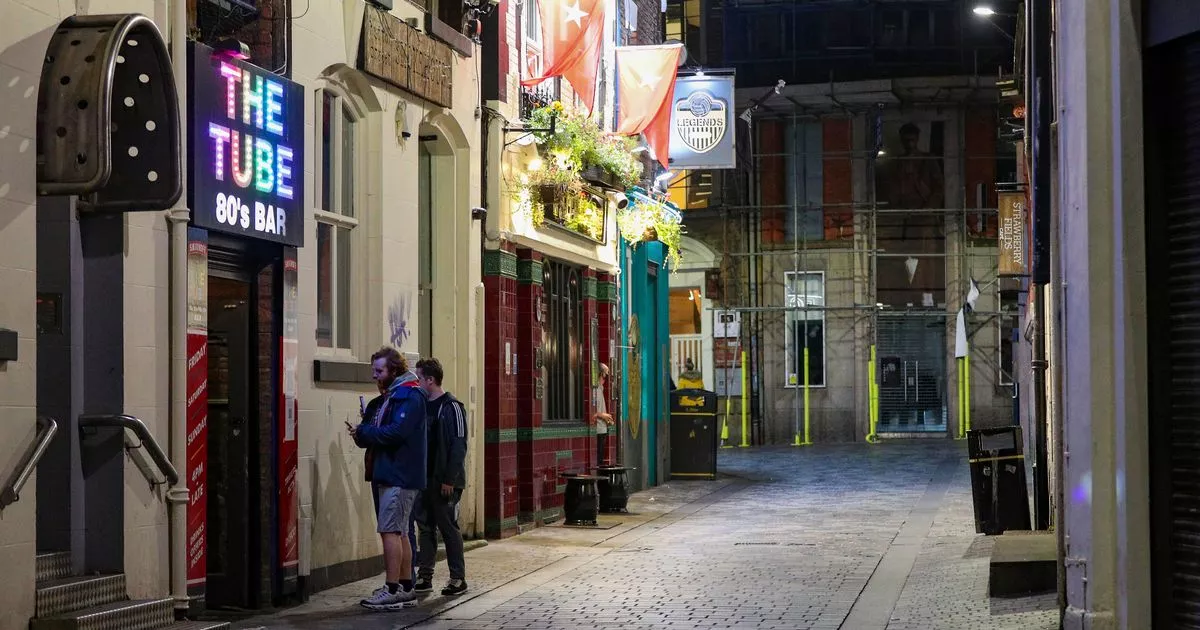The hospitality sector accounts for more than half of all UK job losses vThe hospitality sector accounts for more than half of all UK job losses(Image: PA)
vThe hospitality sector accounts for more than half of all UK job losses(Image: PA)
Nearly 89,000 jobs have vanished in the hospitality sector since the Budget last October, according to new data from the Office for National Statistics by UKHospitality. The industry accounts for more than half of job losses in the UK since the Budget, with 53% of all 164,641 redundancies.
That number is higher than the estimate made by the Office for Budget Responsibility, which had forecast 50,000 job losses due to alterations in employers’ national insurance contributions. The study also revealed that one in every 25 jobs in hospitality has been lost, equating to 4.1% of all roles in the sector.
The proportion of job losses within the hospitality sector, relative to its total workforce, is seven times higher than the rate across the broader UK economy.
Iain Hoskins is the director of Ma Pub Group, the company which oversees Liverpool city centre venues Tempest, Nova Scotia, Ma Boyle’s and most recently Newington Temple. Iain believes the figure is a part of a wider change effecting the hospitality industry, which is affecting smaller areas outside of cities the most.
Iain told the ECHO: “In Liverpool, there’s a feeling among proprietors that times are tight, there’s a need to be more creative, watch every penny you have and adapt.
“In large, it still feels like people are going out. It’s not like there are thousands of bars boarded up every week. New restaurants are opening and there’s a cut and thrust of good business. However, that is different from what you’re seeing when you go further out to satellite towns around cities.
“There’s a different story there. Not only are businesses closing and opening less frequently, it no longer pays to stay open seven days a week. Maybe only half the venues open are all week. You’re seeing more places close on Monday or Tuesday to cut costs. It’s strange because despite places closing there are still people willing to try opening a new business.
“I think the hospitality industry is one of the few left that hasn’t been overrun with automation. It’s difficult to adapt that in hospitality, especially with bars, where serving alcohol has to be person-led and by an adult.
“AI is starting to nip away at a lot of things operationally. You can underestimate how much that will affect. Myself and many people who run businesses are always looking to save labour costs as that is your biggest expenditure. You have to watch it with absolute scrutiny.
“What you’ll see is people being affected with hours and rotas. You have got to hope it doesn’t bite that hard. Hospitality is still one of biggest employers of physical people but things are noticeably changing with the times. We don’t know how much they’ll change in the next ten years because we couldn’t have anticipated the last ten years.
“There are people who use the industry as a side hustle or for weekend work but there are those who want to build a career in it. It’s an interesting push and pull.”
UKHospitality is calling for urgent action at the Budget this autumn, with the government needing to lower business rates, fix national insurance contributions and cut VAT “to stop hospitality businesses being taxed out and to reverse the damage done by increased taxes”.
Kate Nicholls, chair of UKHospitality, said: “The number of job losses suffered in hospitality since the Budget is staggering. More than half of all job losses since October occurring in hospitality is further evidence that our sector has been by far the hardest hit by the Government’s regressive tax increases.
“The sheer scale of costs being placed upon hospitality has forced businesses to take agonisingly tough decisions to cut jobs – with part-time and flexible roles often those most at risk.
“At a time when the country needs jobs, the Government should be encouraging hospitality to grow and create jobs, not tax them out of existence.
“The Government needs to recognise the devastating impact of its tax increases on working people and communities across the country. It should take action at the Budget to reverse this damage by lowering business rates, fixing NICs and cutting VAT.”
